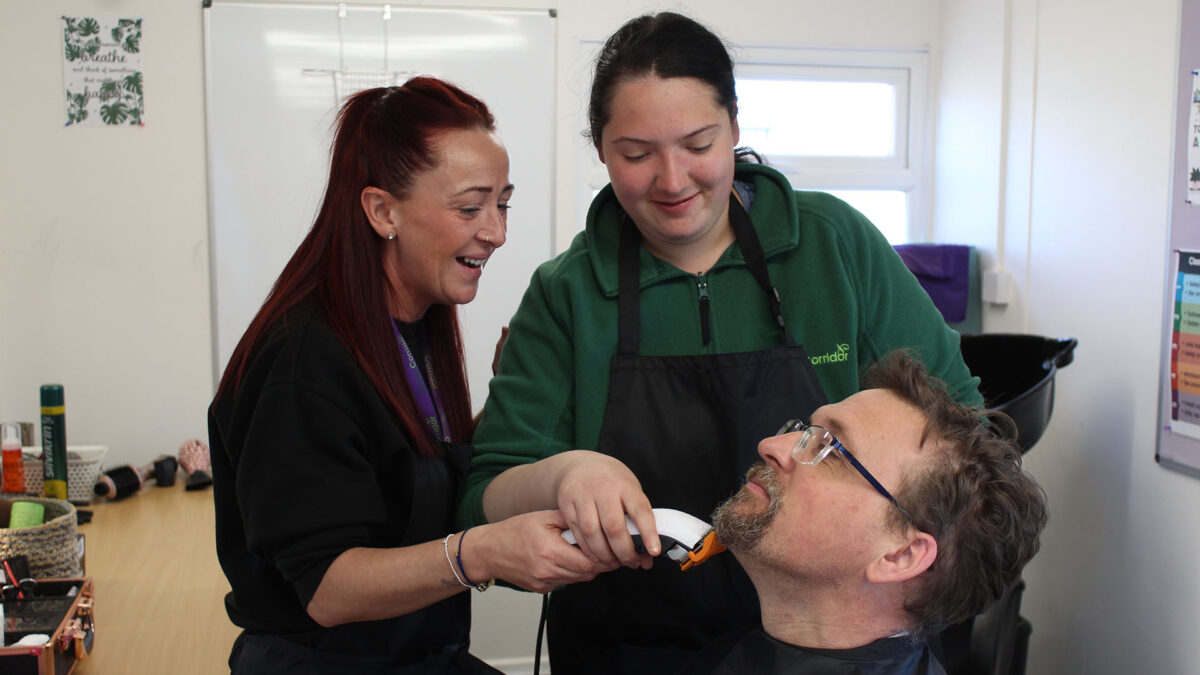The UK Shared Prosperity Fund: Sector Response
Communities across the United Kingdom will benefit from £2.6 billion of funding being allocated Wednesday (13 April) to help spread opportunity and level up the country.
The UK Shared Prosperity Fund will see places that need it most draw up plans this year to deliver on their local priorities, based on a conditional allocation of funding over the next three years. This could include regenerating rundown high streets, fighting anti-social behaviour and crime, or helping more people into decent jobs – helping to revive communities, tackle economic decline and reverse geographical disparities in the UK.
Spreading opportunity and prosperity to all parts of the UK through community-led investment, local areas across England will see £1.58 billion, Scotland £212 million, Wales £585 million and Northern Ireland £127 million made available under the fund.
The funding delivers on the UK government’s commitment to match the previous EU funding from the European Social Fund and European Regional Development Fund. However, the fund will be much more flexible and locally led, freeing communities from the bureaucratic, rigid and complex processes of the EU Structural Funds.
Bureaucracy will be slashed, and there will be far more discretion over what money is spent on. EU requirements for match funding, which impacted on poorer places, will be abolished. Instead of regional agencies, funding decisions will be made by elected leaders in local government, with input from local members of parliament and local businesses and voluntary groups.
The fund also includes a new £559 million adult numeracy programme for the whole UK, Multiply, which will support people with no or low-level maths skills get back into work. The scheme will offer free personal tutoring, digital training, and flexible courses to improve adults’ confidence and numeracy skills.
Driving forward the missions in the government’s Levelling Up White Paper, this fund is in addition to other levelling up funding, including the £4.8 billion Levelling Up Fund, £150 million Community Ownership Fund and £3.6 billion Towns Fund. On top of this, we’re making available an additional £3.7 billion to councils this year.
The Spending Review also increased Scottish Government funding in each year by an average of £4.6 billion, Welsh Government funding by £2.5 billion, and £1.6 billion for the Northern Ireland Executive, delivering in real terms the largest block grants for the devolved administrations since the devolution settlements of 1998.
Secretary of State for Levelling Up Rt Hon Michael Gove MP said:
We have taken back control of our money from the EU and we are empowering those who know their communities best to deliver on their priorities.
The UK Shared Prosperity Fund will help to unleash the creativity and talent of communities that have for too long been overlooked and undervalued.
By targeting this funding at areas of the country that need it the most, we will help spread opportunity and level up in every part of the United Kingdom.
The allocation formula for UK Shared Prosperity Fund takes into account both the local population data, and a broadly based measure of need, including factors like unemployment and income levels. This is to ensure the most amount of money is going to areas which will truly benefit from the fund.
Funding for the UK Shared Prosperity Fund will be £2.6 billion between 2022 and 2025, with this figure reaching £1.5 billion per year by March 2025, delivering on the UK government’s commitment to match the average spending of EU structural funds over the previous programme. Previous EU programmes ramped up and down, and areas will continue to receive EU funding until the end of 2024. Similarly, UK Shared Prosperity Fund will be increased from £400 million in 2022/23 to £1.5 billion in 2024/25, at which point it will match the EU funds it has replaced.
In England each Local Enterprise Partnership area will receive the same in real terms as it used to under EU funding, and within each Local Enterprise Partnership area an index of need will be used to allocated funding to each local authority. Scotland and Wales will receive the same in real terms as they used to receive under EU funding, and an index of need will be used to allocate funds to authorities and regions within Scotland and Wales. Based on consultation with local government and the Scottish and Welsh governments these indexes will be bespoke to their local situations. Northern Ireland will receive a single allocation and will draw up a single investment plan for all of the country.
Sector Response
Vaughan Gething MS, Minister for Economy:
‘On Wednesday (13 April), the UK Government’s plans for the Shared Prosperity Fund (SPF), which replaces EU structural funding, were announced. I want to update Members on our recent negotiations with the UK Government, and what this Fund will mean for Wales.
Since 2016, the Welsh Government has worked intensively to create the strongest possible model for post-EU regional investment in Wales, called our Framework for Regional Investment. This has included co-production with stakeholders, a public consultation, and a project to integrate international best practice with the OECD.
During this time, we also made frequent attempts to engage with UK Ministers on these plans. However, it was not until this month that the UK Government offered a meaningful negotiation in order for the SPF prospectus to be published ahead of the local government pre-election period.
Despite this unfeasible timetable, we attempted to create a partnership approach to this Fund that respects the devolution settlement and aligns with the clearly expressed wishes of people and organisations in Wales on how post-EU funding should be invested and delivered.
Although there has been some movement, the funding plans set out by the UK Government today do not reflect the distinct needs of Welsh communities. We are concerned that too little will reach those communities most in need. The Welsh Government proposed an alternative formula which would distribute funding more fairly across Wales according to economic need, but this was rejected by the UK Government.
The proposed role of the Welsh Government also falls short of a genuine co-decision making function essential to maximising investment and respecting devolution in Wales.
On this basis, it has not been possible to endorse the approach the UK Government is taking on this Fund and we cannot support their decision to redirect economic development funds away from those areas where poverty is most concentrated in particular. This regressive decision is compounded by the dramatic reduction in the funds Wales would have received had the UK Government delivered its pledge to replace EU funds for Wales in full.
We have discussed these issues with the WLGA throughout these talks and they stress that the SPF should have a greater emphasis on need.
We have made it clear to the UK Government that this has implications for the role the Welsh Government is able to play in the next steps of delivery and implementation and the commitment of our resources.
As a result of the intensive discussions we engaged in, concessions have been made which will see regional allocations to local authorities with plans that require alignment with our Framework for Regional Investment. This demonstrates the strength of the partnership approach that exists in Wales and the certainty it represents despite the volatile, centralising UK context.
Over the next three financial years, the SPF will provide £585m to local authorities in Wales. This includes an allocation to Wales of £101m to deliver a UK adult numeracy programme called Multiply. We remain concerned that this scheme risks duplicating Wales’ national curriculum and learning approaches.
While this overall funding package compares relatively favourably to other UK nations, it does not meet the UK Government’s commitment to at least match the size of the EU structural funds Wales has previously and would have qualified for.
Put simply, we are facing a loss of more than £1bn in un-replaced funding over the next three years. As a result, there will be hard decisions to make for the Welsh Government and other institutions across business, higher education and further education, and the third sector which have benefitted from EU Structural Funds previously.
We will now work with local government partners and stakeholders to consider how best to maximise the opportunities that exist for programmes that will support our mission to create a stronger, fairer and greener Wales.
I will keep Members updated on further developments.
This statement is being issued during recess in order to keep members informed. Should members wish me to make a further statement or to answer questions on this when the Senedd returns I would be happy to do so.’
Alistair Jarvis CBE, Chief Executive, Universities UK, said:
“Universities are at the heart of economic growth, improving skills, creating opportunities, and generating prosperity for everyone in the UK. The UK Shared Prosperity Fund should provide crucial investment in local training, innovation, business support and skills projects, which are essential to the success of levelling up.
“It is critical that the new fund allows universities across the four nations of the UK to continue providing successful projects that directly support local employers, jobs, and communities, and that funding for higher level skills projects continues to flow from 2022 otherwise community groups and businesses will miss out on vital training and upskilling opportunities.
“Universities are ready and able to work with local authorities to boost productivity, pay, jobs and living standards, and spread opportunities. The government should ensure that implementation of the fund ensures that local areas are supported in doing so.”











Responses